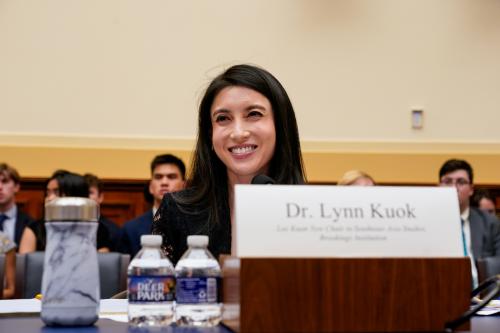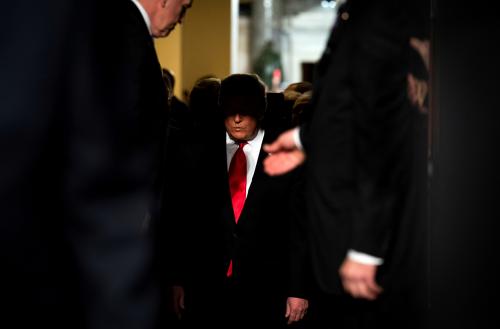Editor’s note: In an interview with Tavis Smiley, Martin Indyk assesses the stakes for President Obama’s first trip to Israel. Read an excerpt below.
PBS: I guess the start is whether or not I have just overstated the case. There are some who believe, as I intimated a moment ago, that the president’s very presence in Israel – that is to say, our president, Barack Obama – this very trip signals to some that there might be some renewed vigor, some renewed possibility for peace between the Israelis and Palestinians.
Yet there are many more others, perhaps, I would say as I read, who think that that is really a false hope; that the expectations on this need to be tamped down. Where does Ambassador Indyk stand?
Martin Indyk: Well, certainly the White House has been trying to tamp down those expectations, including the president himself. He’s going early in his second term, just a couple of days after the Israeli government has been sworn in after their elections.
So it’s very hard to see what exactly could be done on this trip to actually achieve some kind of resumption of the negotiations. If he were going to try to do that, he would have gone later, he would have had the secretary of State go out, try to set things up in that way, and then come in and try to convene the negotiations.
He’s chosen not to do that, and I think the reason for that is that he doesn’t have himself high expectations that even resumption of negotiations is achievable at the moment. So I think his purpose is something else which could help further on down the road, and that purpose is to reintroduce himself to the Israeli public in particular.
They have gotten the impression that he doesn’t like them, that he wants to distance the United States from Israel. His standing in Israeli public opinion is at 10 points, believe it or not – a poll that was taken last Friday.
I think that that’s a bum rap that he has. He doesn’t deserve that. He’s been very supportive in so many ways of their security. But what they seem to care about is whether he loves them or not. They were showered with 16 years of affection by Bill Clinton and then George W. Bush, and they got used to that.
He now has an opportunity to go there, to explain to them that he’s got their back, that he’s been with them in times of difficulties, whether it’s at the U.N. or rockets from Gaza or the Iranian nuclear program, and that he’s going to be with them in the future.
I think he’ll use his oratorical magic, and I think he’ll have a powerful impact. That will be very helpful for an effort to restart the peace process after he leaves.
The Brookings Institution is committed to quality, independence, and impact.
We are supported by a diverse array of funders. In line with our values and policies, each Brookings publication represents the sole views of its author(s).



Commentary
Assessing the Stakes for President Obama’s Israel Trip
March 18, 2013